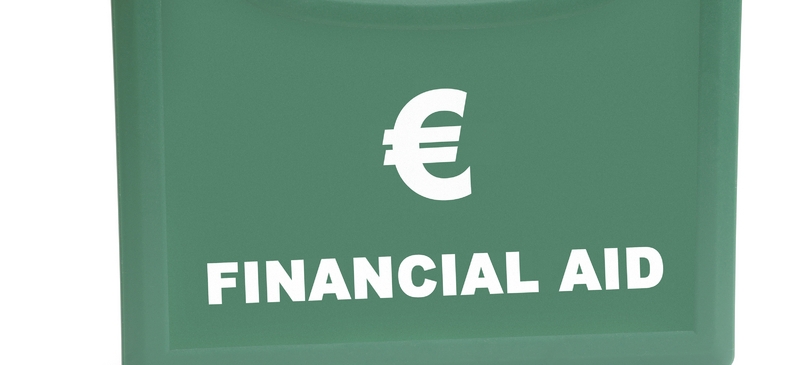
Re-imagining EU development aid
Imagine the Berlaymont late at night. A full moon hangs in the sky. High up in the building, an office lamp still shines. It illuminates four people. They are sprawled comfortably in armchairs for an intimate conversation. The four lead the EU on international affairs. They are Commission President José Manuel Barroso, two of his commissioners – Benita Ferrero-Waldner and Louis Michel – and High Representative Javier Solana. Their topic is the new European political landscape, following the arrival in office of President Nicolas Sarkozy and Prime Minister Gordon Brown, and the June 2007 agreement on the new ‘Reform Treaty’.
This quartet believes that, if the EU can profit from the new leadership and streamlined institutions, it will gain renewed vision and energy for its external action.
The four want to strengthen the EU’s role in security, aid and trade. They are committed to this by ideology as well as by virtue of the jobs they hold. As experienced politicians, however, they know that to sell the agenda they need to start with Sarkozy’s and Brown’s priorities, not their own. They believe that Sarkozy and Brown will back the EU to the extent that it does the things that matter to them. They think that it will not be too hard to gain Sarkozy’s attention. They expect him to be supportive of the European project. And his decision to appoint Bernard Kouchner, a well-known humanitarian activist, as foreign minister, suggests that international development will be a French priority.
The four EU officials think that Brown could be a more challenging case; he is a well-known Atlanticist, and is said to be bored by Europe. But they know he is also an enthusiastic internationalist, strongly committed to global poverty reduction. He wants a big increase in British aid, so that by 2015 it meets the UN target of 0.7 per cent of GNP. But he does not want to increase the number of civil servants. The EU could help him to achieve his goals on development.
Developing countries are struggling with the proliferation of aid donors and special purpose funds. In Europe alone, there are 12 new member-states setting up aid programmes. Globally, there are over 50 bilateral aid donors and more than 200 special funds. A developing country has to deal with over 30 different donors, on average. Simplification is an urgent priority, and the use of the European Commission looks like a winner: one channel, one architecture, one interlocutor for developing countries, one set of procedures, one set of accountabilities.
The architecture is in place, sort of. Europe provides aid through the EU budget and also through the European Development Fund (EDF), an instrument of the Cotonou Convention, the treaty which governs relations between the EU and 78 countries in Africa, the Caribbean and the Pacific. The quality of aid has been poor in the past, but is rising. A single agency has been set up to co-ordinate all EU aid programmes, EuropeAid. There has been significant devolution of responsibilities to country offices. A code of conduct has been agreed, which should lead to better coordination between the Commission and the member-states. And some ministers – even from governments previously hostile, like the UK – have begun to make more positive noises about the EU’s aid programmes.
There is a problem, though. Despite a more favourable disposition, EU countries are still only channelling 20 per cent of their aid through Brussels, and this share is falling as aid expenditure rises. For the UK, for example, the share is expected to fall from around a third at the beginning of the decade to under a tenth by the end. Why? The particular way EU aid is organised does not provide for growth. Aid provided by the EU budget is fixed until 2013. Aid provided under Cotonou is limited by the size of the EDF. There are some provisions for additional voluntary contributions, but they are insignificant.
This, our EU leaders realise, is where the political problem lies. The case for a greater EU role is strong; but the architecture is inadequate. Worse even: the EU’s role could shrink in line with its falling share in Europe’s overall aid spending.
This realisation stirs the meeting, and it is clear to those present what they have to do. If aid in the world is set to double, then aid through Brussels should also double. Indeed, if Europe is to play a bigger part in global development assistance, its share should increase further, which means that the amount of money channelled through Brussels should more than double. What are the options? The EU budget is fixed, at least until after the fundamental expenditure review in 2008-09. And the European Development Fund is hard to tinker with (and anyway does not reach many poor countries in South Asia).
The answer, eventually, emerges. It is to create a new EU fund, perhaps called a ‘Fund for the Millennium Development Goals’. This can absorb new money, spend it in the right places, and borrow the best governance principles from current arrangements. It can have accountability to the European Parliament, a measure of political accountability to recipient countries, an arbitration procedure in case of dispute, and an administration which strives for the highest standards of policy dialogue and fiscal competence. It will be better – it will have to be better – than current EU aid programmes.
Good. A new vision was needed. It has been found. Barroso reaches for the phone.
Simon Maxwell is director of the Overseas Development Institute (UK).
